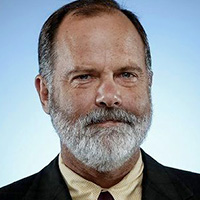THIS PAST YEAR HAS FELT LIKE A DELUGE — an overwhelming rush of events that left many Americans gasping for air — in hospitals, in astonishment at the malevolence of leaders, under the knee of a police officer. Since March of 2020, it has been difficult, in fact and metaphor, to breathe.
With some relief finally at hand, it’s tempting to forget all this and hope for life to return to what it was. But despite the desire to get back to “normal” once the threat of COVID-19 has passed, or at least subsided, it is important to remember that there were plenty of problems with “normal” before the world had ever heard of the novel coronavirus. The American economy was uneven: President Trump’s tax cuts for corporations and the very wealthy exponentially deepened the national debt without delivering much to those at the bottom. California was struggling to provide housing to the poor and middle class. Politics was besieged by big money and determined efforts to discourage certain voters from casting ballots. The earth was warming, with devastating effects from California to Texas and beyond. Mass shootings were alarmingly commonplace.
So now, as the seasons of COVID-19 shift again, this time to hope and the possibility of recovery, the conversation moves not so much to picking up where we left off as to where we go from here. That opens myriad ideas to consider. This issue of Blueprint addresses a few: Housing, the economy, politics, race. Each is a concern where American values and experiences were being tested even before COVID-19 began its work.
The underlying question is: How do we move forward from our crisis? To take just one issue, the economy is battered, both in California and nationally, but it hardly seems adequate to wish for the weakened, unequal state of affairs that predated the pandemic. COVID-19 did not create national division, but the virus made stark its consequences. Distinctions between those of means and those without have carried graver implications during this past year. They have meant, all too often, the difference between survival and death.
Last November was a pivotal moment. A solid majority of Americans rejected Donald Trump and replaced him with Joe Biden. January was another turning point. Trump’s increasingly shrill attempts to hold onto office disintegrated into a violent storming of the U.S. Capitol. A third historic juncture came this March, when Democrats, now in control of the Congress, passed a recovery package championed by Biden that accelerated vaccine distribution and provided economic relief for millions of American families.
That’s a lot of history in six months, and none of this guarantees that a new wind is blowing in Washington. Politics can be responsive, but it also can be notably stubborn — witness the utter lack of bipartisanship in the final tallies on the recovery package.
But there are signs of hope, too. The pandemic appears to be subsiding, and $1.9 trillion is making its way into the hands of Americans. Businesses, moribund for more than a year, are stirring to life.
The nation has endured a great flood. It has inundated the land but now its waters are receding. What’s left is a mess — the mud-covered rubble of a troubled country.
There’s a chance to breathe again. Now it’s time to clean up.






















